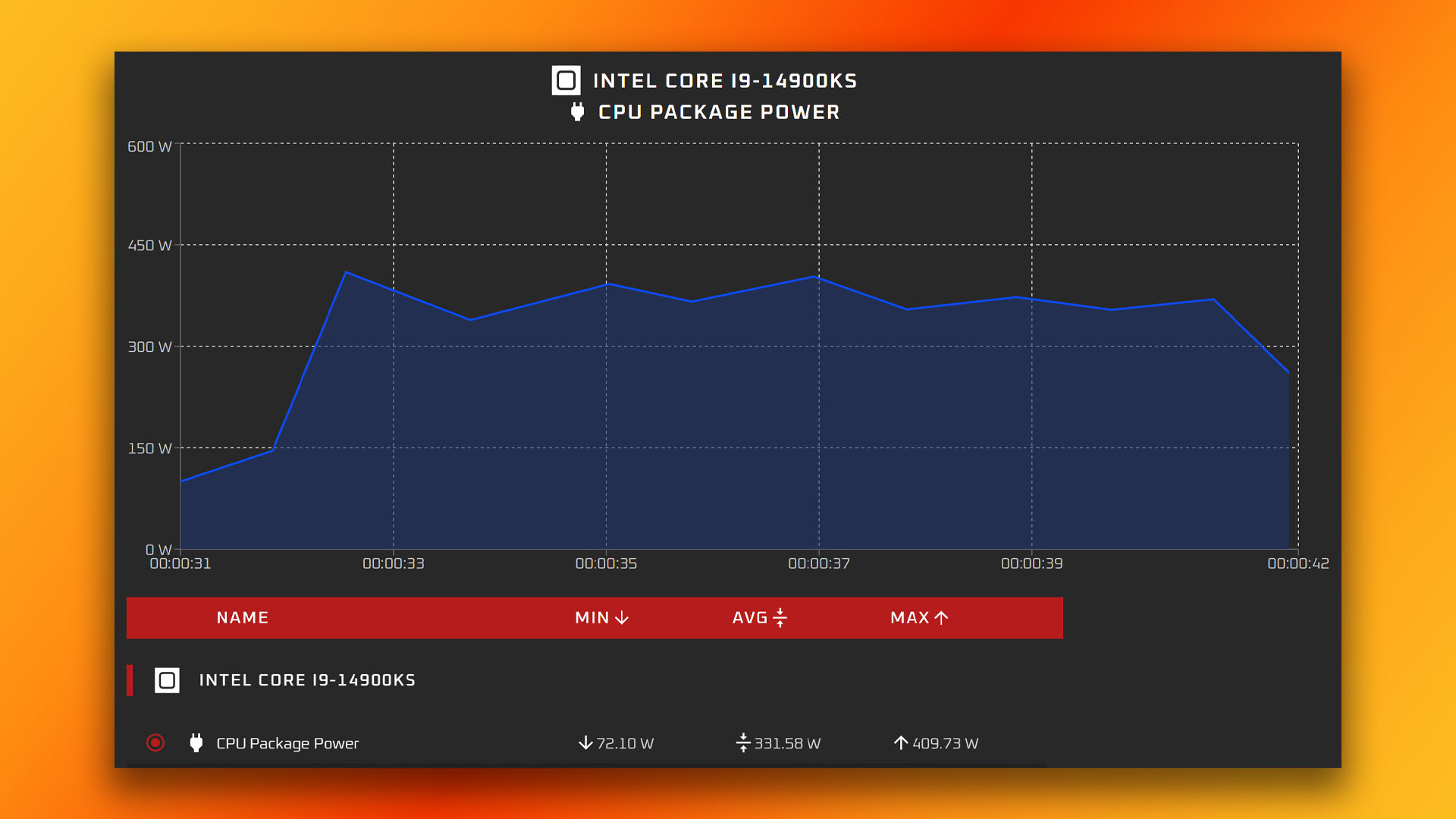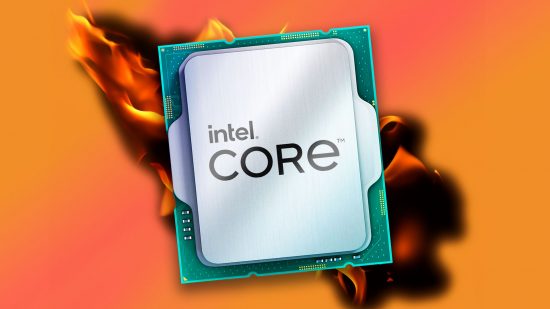Samples of the new Intel Core i9-14900KS CPU look like they’re making their way into people’s hands already, as the forthcoming new flagship chip has been spotted in the rankings for the stability stress test OCCT. What’s more, this test monitors several system metrics as it runs and, to put it bluntly, you’re going to need a serious PSU and cooling system for this new CPU.
Although the Intel 14th gen lineup was a bit underwhelming, being mostly the same as the 13th gen range with some slightly higher clock speeds (the 14700K being the only exception), the Core i9-14900K still earned itself a place on our best gaming CPU guide, thanks to its huge 6GHz boost clock and 24 cores. We did, however, stress in our Core i9-14900K review that “it’s impossible to ignore how hot this chip runs,” as well as “its thirst for watts,” and the Core i9-14900KS looks set to take this to the extreme.
The power draw figures for the CPU in this leak are immense, with a maximum CPU package power draw of 409.73W. Even the average of 331.58W is enormous for just a CPU. Previous rumors had already pointed to the Core i9-14900KS having a thermal design power (TDP) of 150W, but this only refers to Intel’s base power rating. The non-S Core i9-14900K has a base power rating of 125W, with a peak turbo power rating of 253W, and the 14900KS rating may well be even higher.

The reason for that extreme power draw is the clock speed, and the benchmark appears to confirm previous rumors about the Core i9-14900KS having a 6.2GHz single and dual-threaded boost clock, which means it’s probably going to be great for gaming.
The OCCT monitoring figures, as spotted by X (formerly Twitter) user BenchLeaks, also show all the P-Cores running at around 5,885MHz (5.9GHz) which, if we assume that the user didn’t apply an all-core overclock, means the Core i9-14900KS all-core boost clock is 5.9GHz if you’re running software that uses all the cores – another jump of 200MHz over the 14900K’s all core boost clock of 5.7GHz.
Unsurprisingly, this means the P-Cores get extremely hot when they’re running at full load, with some cores even going past the 100C mark in this multi-threaded stress test. Of course, we don’t know what cooling system was used, but there’s very little throttling evident, and the average CPU package temperature is 96.91C shows you’re going to need some hefty cooling power to keep this toasty CPU in check.
In short, the Core i9-14900KS looks set to be hot and power hungry, and it’s likely to be very expensive too. If we use the Core i9-13900KS as a yardstick, it’s probably going to cost around $699. If you’re planning to build a gaming PC and can’t afford to spend that much money on a CPU, as well as a beefy PSU and CPU cooler to cope with it, check out our AMD Ryzen 7 7800X3D review, which is a fantastic gaming CPU that you can pick up for under $400.
